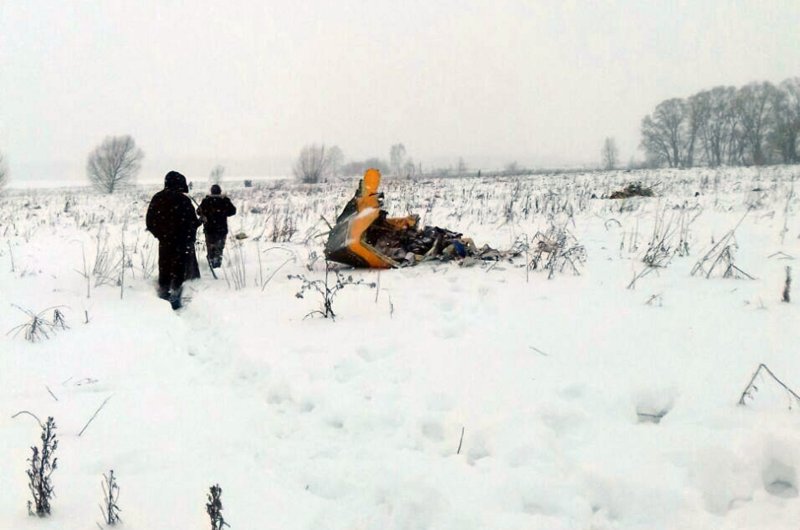Feb. 13 (UPI) -- Investigators said Tuesday faulty speed sensor data, due to human error, is the likely cause of the Russian plane crash outside Moscow that killed 71 people last weekend.
The Antonov An-148 departed Moscow's Domodedovo Airport and was headed to Orsk 900 miles away when it crashed Sunday. All 65 passengers and six crew members aboard the plane died.















